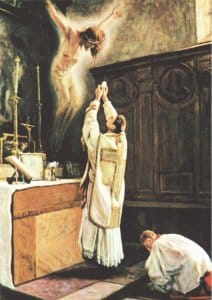J.D. Vance, venture capitalist and author of Hillbilly Elegy, speaks on the American Dream and our Civilizational Crisis....
2013, or the Second Age?
Have you ever thought of yourself as living in the Second Age?
If that doesn’t initially make sense, let’s start with a different question.
When was the last time you gave some serious thought to your calendar? Like most of the wonders of our lives, it can be something we tend to take for granted.
Just stop and appreciate for a second: the same sun that currently illumes your living room is the exact same sun that beat down on Washington’s face during the Battle of Yorktown, the exact same sun that shone through the windows of Philadelphia Hall in the summer of 1787, the exact same sun that stood still in the sky as the Israelites battled the Amorites, the exact same sun that astronomers have used to measure the years.
But have you ever stopped to consider how the calendar marks the years? Why do we suddenly find ourselves in 2013, instead of the year 20464, 3470, or 220?
Robespierre knew the significance of the traditional calendar, and in his radical effort to refashion the face of French society in the wake of the French Revolution, he quickly made the decision to eliminate said calendar, and to start over at the year “1.” If he had succeeded, Frenchmen would now be living in the year 220.
Why did Robespierre do such a thing? For the simple fact that even our secular calendar is based off the historical fact of the birth of the God-man, a historical fact that constantly reminds us of our proper place in this world, a historical fact that serves as a perpetual threat to tyrants and to the enemies of interior freedom.
We find ourselves here, in the year 2013, because the year zero has marked the transition between the old way of living, and the new way of living. In the First Age (BC), God only united Himself to one particular tribe. And furthermore, that God could only be encountered in a particular location: The Temple.
But in the Second Age (AD), the living body of the God-man universalized the opportunity to encounter the loving presence of God, to experience him on an intimate, personal level: “With his Resurrection the new Temple will begin: the living body of Jesus Christ” (The Spirit of the Liturgy, 43, Ratzinger).

This is what our calendar represents. This is how we mark the years. That is why 2013 only makes sense within the larger narrative of the Second Age. Because no matter how hard we try to divorce secular time, “our time”, from Christ’s time, we cannot do so without fundamentally disfiguring ourselves, and along with us, our “Republic.”
But, this is the United States of America, and any of us who are uncomfortable with the wonderful truth of our common religious calendar may exercise our First Amendment right to create a new and improved calendar, beginning with any year we like. Robespierre didn’t have any qualms about ignoring a historical reality, so why should we?
But, if we decide to follow in his footsteps, we shouldn’t expect that our new calendars will enjoy any enduring success. The wonderful truth about the presence of the God-man is that, as a historical fact, it has a wonderful way of sticking in our collective memory…thank God.
Godspeed on your new calendar.
Get the Collegiate Experience You Hunger For
Your time at college is too important to get a shallow education in which viewpoints are shut out and rigorous discussion is shut down.
Explore intellectual conservatism
Join a vibrant community of students and scholars
Defend your principles
Join the ISI community. Membership is free.
